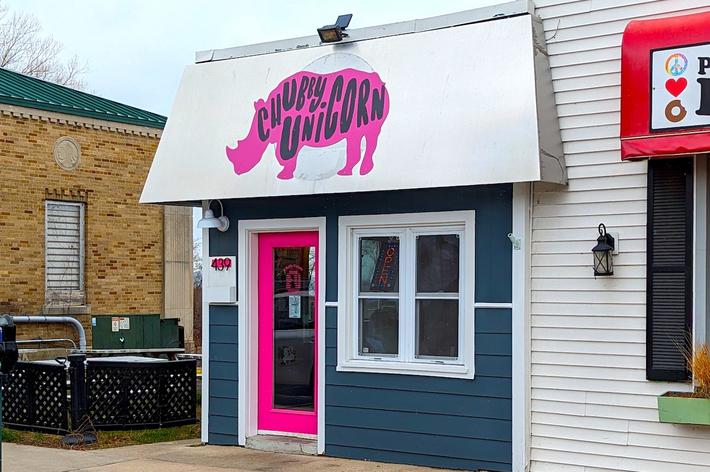Water Woes
May 27, 2016
We generally assume our state’s Department of Environmental Quality (DEQ) will protect our water as a first priority. Even if it doesn’t do anything else, surely we know it will protect our water.
We would be wrong. Really wrong.
Go back to 2001 and 2002, when the DEQ helped decide it would be a swell idea to let Nestle, a Swiss-based conglomerate and the largest seller of bottled water in the world, suck groundwater out of Mecosta County and sell it as Ice Mountain. Lots of water; a whopping 400 gallons every minute. (A lawsuit settlement reached in 2009 reduced the withdrawals to 200 gallons per minute.)
Mecosta County received some permit fees. Local landowners received some lease payments for the use of their land. Nestle received $13 million in tax breaks and hundreds of gallons of free water every minute. The state received nothing. Opponents claimed local springs, seeps and streams would be significantly diminished as a result. DEQ said not to worry. The opponents were right; the diminution of local waters continues apace.
Fast forward a dozen years and different people, but the same DEQ helped bring leaden water to Flint. More than two years after the disaster was discovered, the good people of Flint still must use filters attached to their taps, which might not even work, or use bottled water, including some Ice Mountain from those charitable folks at Nestle.
Then there’s the ongoing disaster-waiting-tohappen with Enbridge’s pipeline under the Straits of Mackinac. DEQ is deep in study on that one, and some politicians claim we have to consider economic impact as well as environmental concerns. Uh-huh. They will have their economic impact when the 63-year-old pipeline fails, as it inevitably will.
As a bonus, about 70 percent of the oil and gas gushing through that pipeline ends up in Canada, not here.
Which brings us right up to current DEQ insults.
First is a proposed commercial trout hatchery on the banks of the AuSable River. Some of us thought there was already a trout hatchery in the area called the AuSable River, but we were delusional.
A commercial hatchery, producing up to 300,000 trout a year, comes with some potential issues, as was outlined in Patrick Sullivan’s excellent recent article in this paper. Issues such as the waste of 300,000 fish potentially ending up in the river, not to mention the remnants of their pellet food, or the likely escape of farmed fish, which can then breed with the wild trout.
We’re told there will be filters and constant testing and monitoring, and the river will be as good as ever. What could possibly go wrong?
Then there is Waukesha, Wis., a suburb of Milwaukee with a population of about 70,000. In 2013 they discovered their groundwater was tainted by excessive levels of radium. There was some irony in that since the place has long been nicknamed Spring City because of its clean spring water.
Waukesha wants to take its water via pipeline from Lake Michigan. Unfortunately, it’s well beyond the 10-mile limit the Great Lakes Compact allows for such withdrawals. The city would take 8.2 million gallons of water a day — that’s right, 8,200,000 gallons every day — and send some of it back as treated waste water. Not potable water; the city would use that.
The city has received preliminary approval from the Great Lakes Commission.
Other communities near Waukesha aren’t experiencing similar issues because they withdraw from a different source. But why go next door for water when you can pipe it 20 miles?
The request requires unanimous approval from the Great Lakes governors of Michigan, Illinois, Indiana, Wisconsin, Minnesota, Ohio, and Pennsylvania. A single “no” would be the end of it.
Neither our DEQ nor our governor have uttered a peep, much less a veto.
As precedents go, this is an especially bad one. The parched west and southwest U.S. will be coming for our water soon enough. Approving Waukesha’s request lays the groundwork for that.
Water is the lifeblood of northern Michigan. It puts customers in our businesses, dollars in our pockets and joy in our souls.
Allowing Nestle to decimate ground water, or Waukesha to suck out millions of gallons of Lake Michigan water, is foolishness. There’s no benefit except for those taking our water. The pipeline under the Straits or a proposed commercial fish hatchery are worse still, with the potential of destroying both waterways and local economies.
And, no, not everything can be balanced against economic development. No amount of commerce will restore a once-pristine river or save an oil-besotted fishery.
Water, both above and below ground, is worth protecting. In fact, it’s critically important. Just not to the state bureaucrats who are supposed to be the folks doing the protecting.
Trending

Springtime Jazz with NMC
Award-winning vibraphonist Jim Cooper has been playing the vibraphone for over 45 years and has performed with jazz artist... Read More >>
Dark Skies and Bright Stars
You may know Emmet County is home to Headlands International Dark Sky Park, where uninterrupted Lake Michigan shoreline is... Read More >>
Community Impact Market
No need to drive through the orange barrels this weekend: Many of your favorite businesses from Traverse City’s majo... Read More >>


